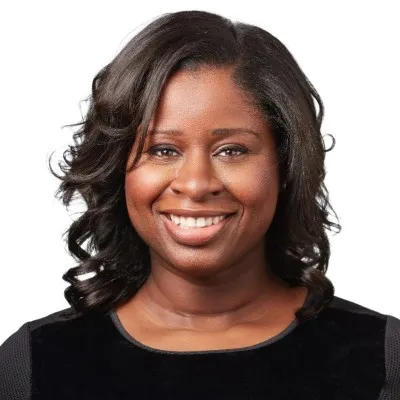Own Your Career by Taking Risks and Continued Learning


The paths to a CEO position may vary, but it’s not often that one starts as a trained scientist. That’s the story of Inna Kuznetsova, CEO at ToolsGroup. She recently appeared on The BragWorthy Culture to share lessons learned along the way.
Growing up in Communist Russia, Inna didn’t have childhood dreams of being a CEO, because there was no such thing in her world – there were no “businesses.” Her family, in particular her physicist-grandfather, groomed her for a career in science. This included working on differential equations and practicing chess in middle school.
Perestroika
Inna was finishing her Ph.D. in linear differential equations at Moscow State University, Perestroika, when Russia was opening up to the West and the world. Jobs in academia were being replaced by roles at large companies. One of these companies was IBM and Inna was fortunate enough to receive wonderful training and insights along with a salary much higher than she might have expected in her previous academic trajectory.
That training helped her realize how much of leadership and management is an acquired skill, one that she aspired to improve. Inna continued to learn and grow as she started working for IBM in America. There, she helped scale up IBM life sciences, one of its most successful startups. She also picked up an MBA at Columbia.
After 20 years with Big Blue, Inna felt she wanted to try something different. This is when a recruiter reached out with an offer of a position working for a $9B company that was repeatedly missing goals and bleeding talent. The title on offer was Chief Commercial Officer. Inna felt the job was a good fit as she knew how to create solutions and how to focus on profitability while creating customer value.
During the interview process, Inna found out that not only was she the only female candidate, but she was also one of the few without at least a decade of experience in logistics and supply chain. Instead, Inna had experience in managing global accounts and using technology to structure sales compensation to get the most out of her teams. The CEO (rightfully) guessed that if Inna could pull off a math Ph.D., she would have what it takes to learn supply chain.
Inna dove into supply chain and the learning continued. She characterizes this as, “very real and very objective because you can touch the box and see whether it’s on time or not.” Indeed, whole swaths of the population learned about supply chain challenges during the pandemic and while there was a lot of pain associated with that learning, Inna was optimistic for the future.
For years the industry has been talking about intelligent supply chain, i.e. using AI to optimize processes. The pandemic pushed some of those conversations from concept to reality and a path has now been forged for an improved supply chain in the years to come.
While AI and the possibilities it promises are exciting, innovation doesn’t necessarily have to be high-tech. In fact, Inna shared a story about an innovative project in a factory that offered 100X savings: a 200€ bar that could be placed across a docking door to prevent 20,000€ in damages should a truck crash into it. Innovation doesn’t just have to mean doing things faster, it can also mean doing them more cheaply and safely.
During her time as a chief commercial officer, Inna realized that she had the ability — and the desire — to become a CEO. She knew she had even more to learn and was excited to do so. This led to her next role at an acquired company, which she then led as CEO.
Mindsets for Leadership
Own Your Career
As Inna looked back to reflect on what had led her to this point, much is attributed to her mindset — she assumed total ownership of her career from an early stage. Mentors, spouses and family members can offer helpful advice, but only you can own your own career and all the tough choices that come with it. Sometimes those tough choices lead to more downs than ups, but what matters is getting up after each fall.
Take Risks
Inna insists that, “Taking risks is paramount for a successful career.” Those risks won’t always pan out, but without them, there’s a reduced chance for true success. In Inna’s case, she has taken many risks: working in male-dominated fields, learning supply chain from scratch and moving to a different country to name but a few.
Always Be Learning
“Don’t assume your title will open doors,” Inna says. Take the time to learn but also look for mentors. They can give you guidance, particularly in situations in which you lack experience. One of the things she learned from one of her mentors was how to create better paths of promotion for women. She did this by looking at how they are distributed within the company and then identifying major drop-offs. Those were opportunities.
Live Your Values
While it’s become trendy for companies to display their values on their walls, Inna has found that employees at these companies often can’t relate those values to their day-to-day work environment. A far more effective practice is to encourage your team to live your values. This way the values have an internal frame of reference.
If these ideas feel like they belong in a book somewhere, you’re not wrong! Inna has already published a couple of books in Russian: she just hasn’t gotten around to translating them into English yet. But you don’t need to wait to put her lessons into practice. When we asked her what she wants her legacy to be, she answered, “If I made things easier for others or helped them make fewer mistakes than I did, that’s enough for me.”
Check Out the Full Episode
Learn more about taking risks and lifelong learning from Inna by listening to our full interview on Apple or Spotify.
Looking to build your own BragWorthy Culture? Fringe can help. Fringe is the number one lifestyle benefits marketplace. Give your people the power of choice and save a ton of administrative headaches by consolidating existing vendors and programs into a simple, automated platform. Talk to our team to get started.

.jpeg)
